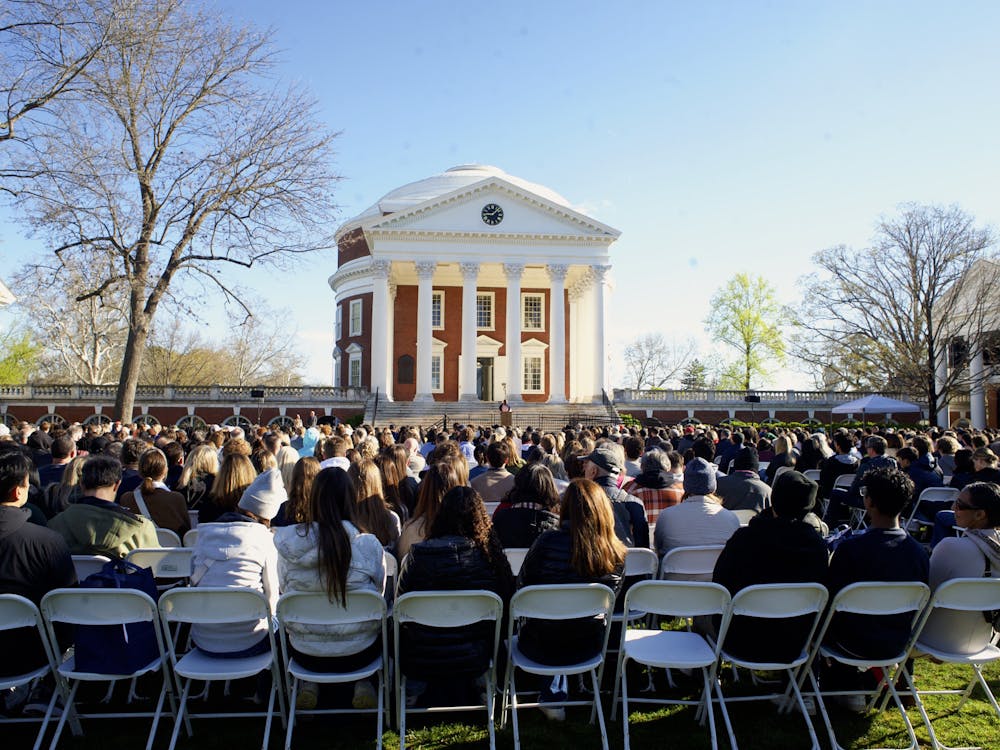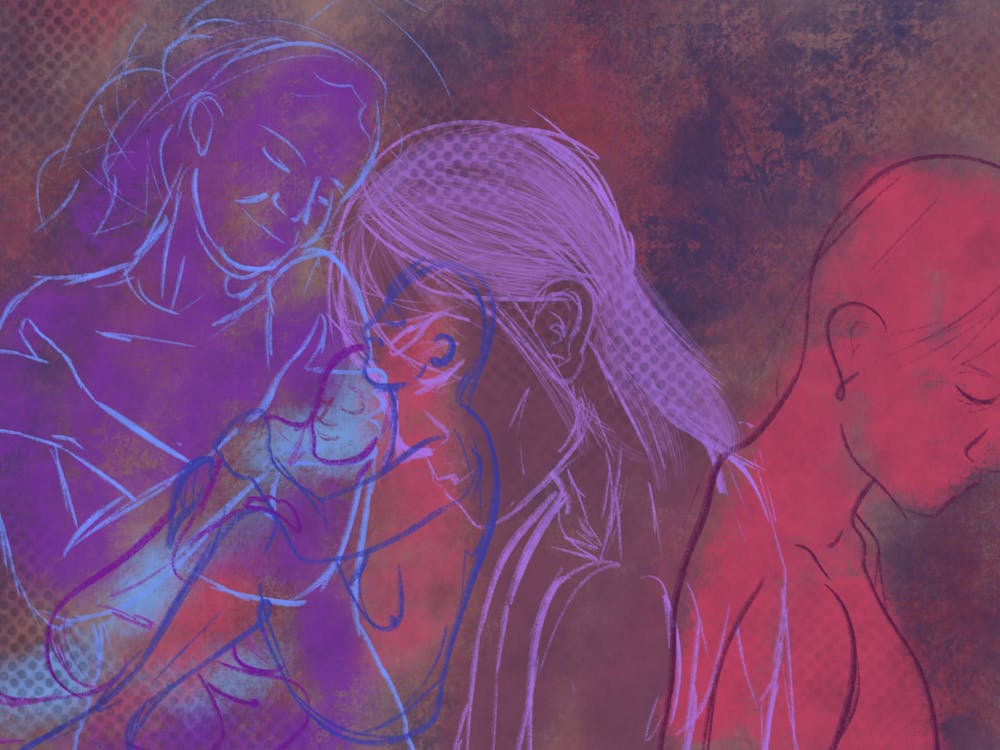Syllabus week tends to be a nice breather. After summer has overstayed its welcome, we have a chance to come back and have all the perks of college with very few academic responsibilities.
These paper packets, however, come with a series of grave warnings written at the end: you must ask for all extensions at least six weeks ahead of time, no more than one absence will be accepted without serious consequences to your grade and tardiness will not be tolerated. At the end — coupled with threats which can range from points off your assignment to execution by being drawn and quartered in the Amphitheatre — is the edict: “All assignments must be signed and pledged.”
The idea behind writing the honor pledge is fairly simple; it both affirms the student has not somehow failed to notice the concept of honor during his time at the University and requires the student to explicitly give his word. To me, however, the pledge is a ceremonial act. The pledge is more concerned with a student’s ability to copy down a few sentences than the likelihood he or she cheated.
It’s not that I don’t believe my word is important — quite to the contrary. I just believe at some point when I was writing a 3,000 word essay, putting my name at the top and handing it in as my own work, I was implicitly making some kind of pledge. I like to think my word doesn’t begin with the scrawled handwritten sentence on the 10th page of an essay.
Beyond this, I have trouble believing people are liable to forget not to cheat or plagiarize. For starters, I would love to see someone make it a day at the University — let alone a semester — without having honor referenced in some form. Where the honor system thrives is through its widespread visibility in University culture — every student knows of the collective value placed on student integrity. There is a big distinction between honor as a virtue, important for its own sake, and superficial appearances like the pledge, which makes sure you aren’t academically punished but has little to do with whether you actually behaved honorably.
It’s not like the pledge actively deters cheating. Someone who has just plagiarized an entire assignment doesn’t suddenly feel his hand start to shake and his nose start to bleed as he tries to write the pledge. Cheating is a conscious, willful act. The word of cheaters is not worth very much as they, by definition, don’t have integrity to swear upon. If everyone who did something dishonorable found themselves unable to write the pledge, I’d imagine they’d be pretty easy to catch.
For me, why this matters is simple. On a basic level, I am a deeply absent-minded person. I find the stress of grinding out a timed essay to be somewhat distracting and, as half my TAs can attest to, I am prone to sending desperate emails begging for mercy and forgiveness after regularly forgetting to write the pledge. When I send these kind of emails, I’m not concerned with wounded integrity, but rather with my grades. I don’t like being punished for something that has nothing to do with my academic performance. It’s a classic scare tactic and one that I, as a natural worrier, am unnecessarily disturbed by. It’s similar to the fear I will accidentally write a paper that, by statistical impossibility, has coincidentally been written before.
On another level, writing the pledge is just a little annoying. It reminds me of the cursive section of the SAT — I freaked out because I didn’t know what a cursive “f” looked like and the proctor kept asking if everyone was finished before I was done with the first line. It’s like returning to the dentist I have gone to for years and having to redo the insurance information I am certain they have on file. I simply would like my honor pledge to be on file for my professors to consult at their convenience. Students should just have to write “I don’t cheat, et al” on their first graded assignment during their first year and be forever relieved of the burden.
Unfortunately, despite the honor code, cheating does happen sometimes. I would be willing to bet, however, there is one thing all cheaters have in common: they wrote the honor pledge.
Christian’s column runs biweekly Fridays. He can be reached at c.hecht@cavalierdaily.com.





